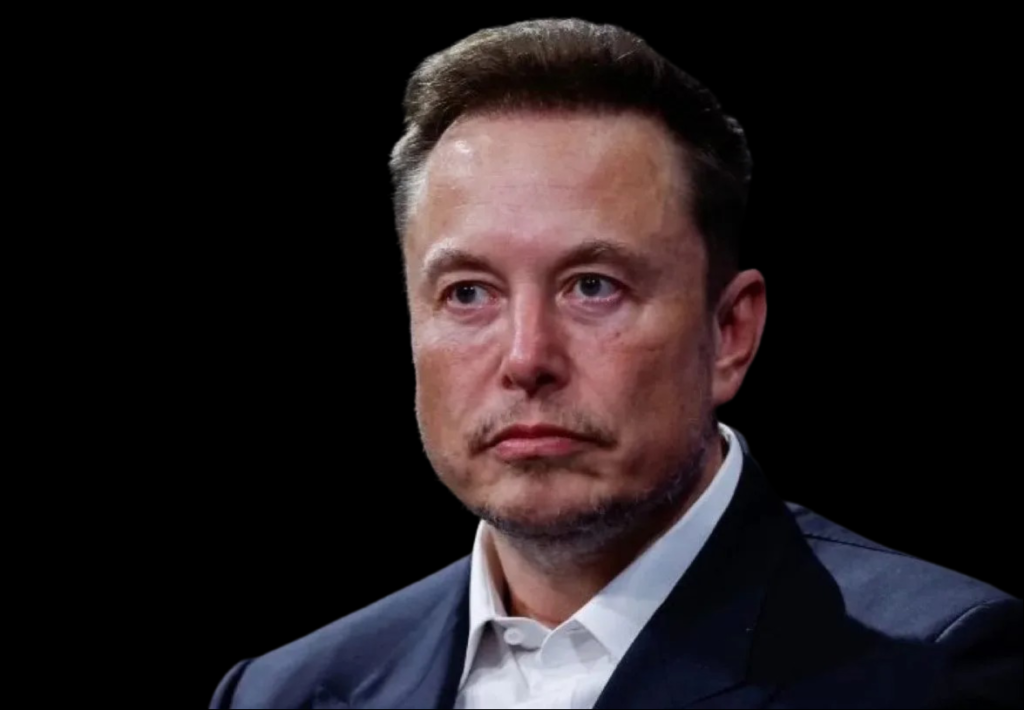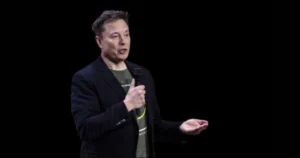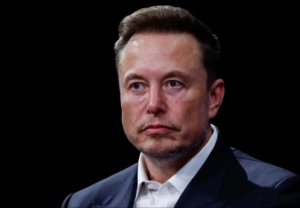
Washington, CNN – On Saturday, Elon Musk, the tech magnate and head of Tesla, once again stirred the political arena with a daring statement at a rally in Harrisburg, Pennsylvania. While backing former President Donald Trump, Musk revealed his plan to distribute $1 million daily to registered voters in key states. This move, as Musk described, is intended to bolster support for the First and Second Amendments, but it has swiftly ignited debate. Experts on election law voiced apprehensions that this daily lottery might infringe upon regulations that forbid compensating individuals for registering to vote.
Musk’s strategy entails granting $1 million every day until the election to those who endorse a petition initiated by his political action committee (PAC). This petition advocates for the rights of free expression and the right to possess firearms—two of the most contentious amendments in the Constitution. The twist? The giveaway is limited to registered voters in seven pivotal states: Pennsylvania, Georgia, Nevada, Arizona, Michigan, Wisconsin, and North Carolina. With deadlines for voter registration looming, this declaration has garnered both enthusiasm from Musk’s advocates and doubts from legal authorities.
The Legal Concerns: Bribery or Just Clever Tactics?
Shortly after Elon Musk’s declaration, legal analysts began to raise concerns. According to federal regulations, offering or paying someone to either register to vote or cast their ballot is illegal. The statute specifies that anyone convicted of this activity could be sentenced to as much as five years in prison. This provision aims to maintain the integrity of the democratic process and ensure that voters are not coerced or unduly influenced by monetary rewards.
Derek Muller, an election law professor at Notre Dame Law School, was one of the initial voices to underscore possible legal ramifications associated with Musk’s contest. He noted that the giveaway presents significant worries because it seems directly associated with voter registration. “When you restrict a prize or contest to solely registered voters, it starts to resemble compensating individuals for voter registration, which is expressly prohibited under federal law,” Muller articulated in a statement to CNN.
While the regulations prohibit compensation for voter registration, the context surrounding Musk’s contest presents a more intricate scenario. Muller states that the legality of the giveaway hinges on various elements. For instance, if the contest encompasses individuals who were already registered prior to the announcement of the cash prize, the infringement may not be as evident. Conversely, if the campaign aims to entice new registrants by providing monetary rewards, it turns more contentious.
Musk, the wealthiest individual worldwide, has already contributed in excess of $75 million to a pro-Trump super PAC, positioning him as a significant player in the 2024 electoral landscape. His choice to present such substantial financial rewards in pivotal states—where the outcome of the presidential contest might be determined—has stirred concern among scholars of election law and political analysts alike.
Elon Musk’s Campaign Rally in Pennsylvania: Stirring Up Controversy
Elon Musk’s contest kickoff occurred at a campaign rally in Harrisburg, Pennsylvania, where he shared the stage with former President Trump. This gathering is part of Musk’s increasing engagement in politics as he aims to rally voters for Trump’s re-election effort. During the rally, Musk clearly articulated the goal of the giveaway, urging attendees not only to sign the petition but also to inform their friends and family.
“This is a unique request,” Elon Musk addressed the supporters. “Go out there, engage with people, get them registered, and persuade them to cast their vote.” The message was unmistakable: the campaign is focused on more than merely a petition. It aims to enhance voter turnout among Trump advocates in critical states. By pledging $1 million each day, Musk seeks to spark substantial enthusiasm and elevate participation in the election.
During the rally, Musk personally presented a massive $1 million check to the inaugural winner of the sweepstakes. The winner, an ardent Trump supporter, was greeted with applause from the audience. Musk’s nonchalant “you’re welcome” as he handed over the check only heightened the spectacle. The second $1 million winner was revealed the next day at an event in Pittsburgh, where Musk continued to advocate for his petition and motivate early voting.
Election Law Experts Weigh In: A Clear Case of Vote-Buying?
Numerous specialists have labeled Musk’s endeavor a glaring example of vote purchasing. David Becker, a past official at the U.S. Department of Justice who dealt with voting rights issues, was clear in his evaluation. “This isn’t a debatable matter,” Becker stated. “This exemplifies precisely the type of conduct that election law aims to prohibit. Offering monetary rewards to voters—particularly in key swing states—compromises the integrity of the electoral process.”
Becker’s apprehensions were mirrored by other legal academics, such as Rick Hasen, a professor at UCLA School of Law and a notable critic of Trump. In a blog entry, Hasen contended that Musk’s lottery is “outright unlawful vote purchasing” and referenced the Justice Department’s election offenses manual, which explicitly indicates that providing lottery chances as incentives for voter registration is illegal.
The reality that Musk’s donation is confined to voters in pivotal states has further intensified conjecture that the effort is politically driven. Becker remarked that the timing of the lottery—merely days before numerous voter registration deadlines—adds to its dubious nature. “It’s unmistakable that this is a strategy to sway the election results by focusing on voters in battleground states,” Becker stated.
What Happens Next: Legal Action or Political Fallout?
As it stands, it is uncertain whether Elon Musk will encounter any legal repercussions for his deeds; nevertheless, the uproar surrounding the sweepstakes is likely to persist for the foreseeable future. Pennsylvania’s Governor Josh Shapiro, a Democrat and previous state attorney general, voiced his “significant worry” regarding the legality of Musk’s giveaway and hinted that law enforcement could launch an investigation. “It’s an issue that we will need to examine more thoroughly,” Shapiro remarked during an appearance on NBC’s “Meet the Press.”
Apart from the legal issues, Musk has been criticized for disseminating false information about the 2020 election. Throughout his rallies, he has reiterated disproven conspiracy theories concerning voter fraud, further igniting concerns about the reliability of the upcoming election. Michigan Secretary of State Jocelyn Benson condemned Musk for his remarks, alleging that he is “propagating harmful disinformation” and eroding public confidence in the electoral system.
The Broader Implications: Billionaire Influence in Politics
Musk’s contest exemplifies how tycoons are utilizing their fortunes to sway American politics. As the 2024 election approaches, he is not the only one striving to influence the results. Numerous prominent billionaires have also poured enormous amounts into political campaigns, prompting concerns about the impact of wealth on democracy.
With the 2024 election looming, Musk’s contentious giveaway is poised to remain a significant topic of discussion. Regardless of the legality of his actions, the overarching concern of how affluent individuals and corporations can impact elections persists. Musk’s $1 million-a-day giveaway may represent an extraordinary initiative, yet it fits into a broader pattern of billionaires leveraging their financial power to affect voters in critical states—an issue set to continue influencing the trajectory of American democracy.
Conclusion: The Ethical and Legal Dilemmas of Musk’s Giveaway
Elon Musk’s daily $1 million voter contest highlights a profound conflict between innovative political involvement and possible legal infringements. While his followers may perceive the initiative as an exhilarating method to rally voters for Trump and champion vital constitutional liberties, legal analysts regard it as a potentially perilous precedent, possibly veering into illicit vote-buying. As the debate progresses, the pivotal question arises: where should the boundary be established between encouraging civic engagement and unlawfully shaping the electoral process?
Beyond the legal implications, Musk’s behavior highlights an emerging pattern of billionaires leveraging their immense fortunes to directly influence politics. While individuals like Musk possess the freedom to participate in political endeavors, the enormity of their financial clout raises significant concerns regarding equity, democracy, and the influence of capital in determining electoral outcomes. Whether Musk’s contest results in legal repercussions or not, it underscores the necessity for continued vigilance regarding the intersection of wealth and authority with democratic systems.
As we near the 2024 elections, citizens, legislators, and electoral officials will need to confront these issues. Central to this discussion is the destiny of American democracy: how can we guarantee an equitable and liberated voting process, where every voice—rather than only those supported by millionaires—is acknowledged and appreciated equally?



